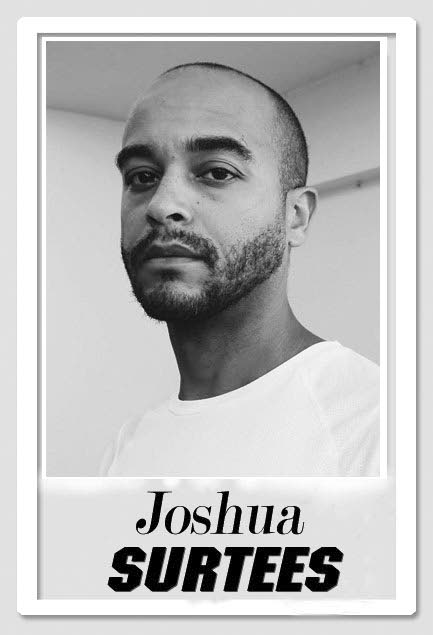The missionary imposition

And so it came to pass that Mr Chau was smitten by arrows. And there was much rejoicing on the internet and praising of those who smote him.
There was a time when I too – as a lifelong atheist and champion of indigenous folk – might have laughed about the sticky end on North Sentinel Island of the self-anointed missionary John Allen Chau; killed by an uncontacted tribe while attempting to “declare Jesus” to them.
But calling the tribespeople heroes for killing him, as many have, rings hollow to me. It celebrates his death as a kind of vengeance for the atrocities done by colonisers over many centuries. The righteous preachers of Facebook Island hailed this proxy victory over colonialism.
“If only the indigenous had done the same to Columbus, history would be so different…” was the theme.
But that is a false premise. In many first contacts, indigenous people did attack new arrivals on their shores. The Conquistadors, British naval officers, Portuguese seafarers et al responded barbarically – hanging, burning, flaying, quartering, boiling people alive, committing infanticide, enslaving, torturing and raping.
But Chau’s Christian mission was not the same as slavery-era Europeans who intended to force religious salvation onto so-called savages. He came in peace, he came using Instagram, he was not a malignant force of Western evil. He was stubborn, stupid and prepared to die for his convictions.
When Ronald Reagan died, I stayed up late to enjoy his funeral and witness that neo-colonialist buried six feet under. There are indeed some deaths worth celebrating. Warmongers, Nazis, brutal dictators, serial killers. But missionaries in 2018? Not really.
“They were just defending themselves…” was another theme. This is true. Chau could have killed them simply by breathing germs.
The Sentinelese response stayed true to their traditional practice, undisturbed for thousands of years, of protecting their territory with force.
There is an interesting irony that we liberals want societies to be civilised and non-violent, without war or weapons. We don’t support people killing anyone that comes near. Yet at the same time we cherish so-called primitive societies who do exactly that. We help them maintain that way of life. The preservation of ancient tribal customs is important for humanity.
But what other behaviours do the Sentinelese practice that are at odds with the values modern societies uphold? We don’t know for sure because the only anthropologists to attempt contact failed.
Another primitive tribe, the Sambia in Papua New Guinea, perform a coming-of-age ritual in which young boys must suck semen from the older men's penises – for fertility and masculinity. Women are contaminators who weaken men. During menstruation, a woman must not pollute. When they enter a man’s hut they crawl along the ground. Boys are forcibly removed from their mothers aged nine and jam sticks up their noses – ridding themselves of their mother’s contaminated blood.
These were among the first things I learned studying anthropology at university. After watching the Sambia documentary, Guardians of the Flutes, we debated whether their cultural practices should be judged according to external norms.
The cultural relativist answer is no. We accept there is violence in primitive societies and sexual and gendered norms that would be problematic in non-primitive societies.
Will those cheering Chau’s death also celebrate other tribal traditions? Child marriage anybody?
A reasonable, scholarly response would be to try to understand the killing. We don’t know if it was ritualistic, sadistic, self-defence, entertainment, bounty, war, performance or had no motive at all. That we saw justice, vengeance and elation in it speaks to the primitive impulse inside us apparently civilised folk – folk with internet and phones.
None of this exempts Chau from blame. His mission from God was unnecessary and far less worthy than previous attempts to reach the tribe by anthropologists wishing to study their culture and language, or government officials trying to ascertain levels of welfare.
“You guys might think I’m crazy in all this,” Chau wrote in his diary the night before his death.
And yes, his belief that reciting the bible and praying to Jesus guarantees his ascent to heaven, while the godless Sentinelese burn in fiery pits, is perhaps symptomatic of mental illness. But let’s not laugh at the death of a delusional religious zealot any more than we would a madman who throws himself into the lion enclosure at the zoo.
Relatedly, last week, two other post-colonial situations moved towards their endgames.
France’s Quai Branly museum agreed to give Benin back stolen artefacts of historical importance. Meanwhile, the University of Glasgow admitted to receiving £200 million from Caribbean slave owners and are in talks with UWI about contributing "to cleaning up the colonial legacies of slavery that are holding back the region," according to a statement from UWI's vice chancellor Prof Sir Hilary Beckles.
The historic wrongs of colonialism are beginning to be put right in material terms and institutions must be sites of reparative justice. Today, cultural and academic institutions; tomorrow, banking, commerce and state-owned assets.
Chau committed a crime approaching Sentinel Island, but his death was sad, predictable and avoidable. To hold it up as justice distracts us from pursuing the remediation of serious, unassuaged injuries.

Comments
"The missionary imposition"